After La Côte d’Ivoire successfully hosted Africa’s flagship showpiece in 2023 and made it memorable by clinching the title, Morocco—home to the oldest university in the world—won the bid on September 27, 2023, to host the highly anticipated 2025 Africa Cup of Nations (AFCON).
The 2025 AFCON promises to be an exciting event as the best footballing nations across Africa prepare to compete for the prestigious title in a country located in the Maghreb region of North Africa. With top-tier teams aiming to showcase their skills and emerging talents eager to make their mark, the tournament is expected to deliver thrilling matches, intense rivalries, and unforgettable moments. Fans from all over the continent will be watching closely to see who will rise to the occasion and claim Africa’s most coveted football trophy after the Elephants took the title in 2023.
The tournament is slated for December 21, 2025, culminating with the final on January 18, 2026.
As the Royal Moroccan Football Federation has yet to officially announce the venues, UniversSports’ Gabriel Tecco Mensah explores some key stadiums expected to host the 35th edition.
Mohammed V Stadium, Casablanca
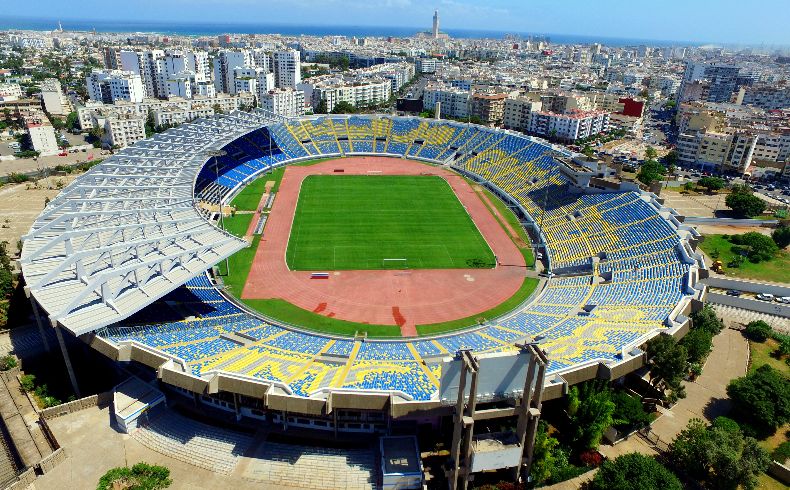
Named after King Mohammed V and located in the heart of Casablanca, this stadium is expected to be the centerpiece of the tournament. With a seating capacity of 45,891, it is the oldest football stadium in Morocco. Primarily hosting association football matches, it serves as the home ground for the Morocco national football team, as well as local rivals Wydad AC and Raja CA. In 1997, it set an attendance record of 110,000 during the Casablanca football derby and a match between the Moroccan national team and Ghana, a record that was matched again during Morocco’s match against Argentina in 2004. Having previously hosted the AFCON final in 1988, this historic venue is anticipated to play a key role once more.
Prince Moulay Abdellah Stadium, Rabat
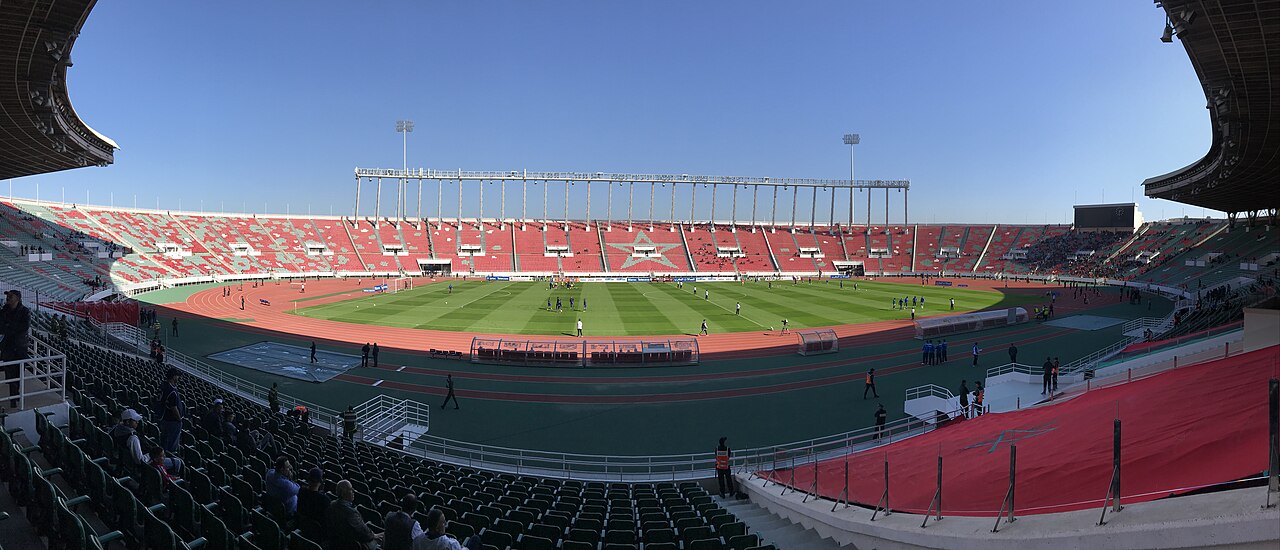
This multi-purpose stadium in Rabat, is named after Prince Moulay Abdellah, brother of the king of Morocco in 1961. It has been the home of AS FAR since their formation in 1983. The stadium has hosted prominent matches, including the 2014 and 2022 FIFA Club World Cups, and served as one of the venues for the 1988 Africa Cup of Nations. Primarily used for football, it also accommodates athletics events and is currently undergoing expansion to increase its capacity. The refurbished stadium is also slated to be one of the host venues for the 2030 FIFA World Cup, which Morocco will co-host with Portugal and Spain.
Ibn Batouta Stadium, Tangier
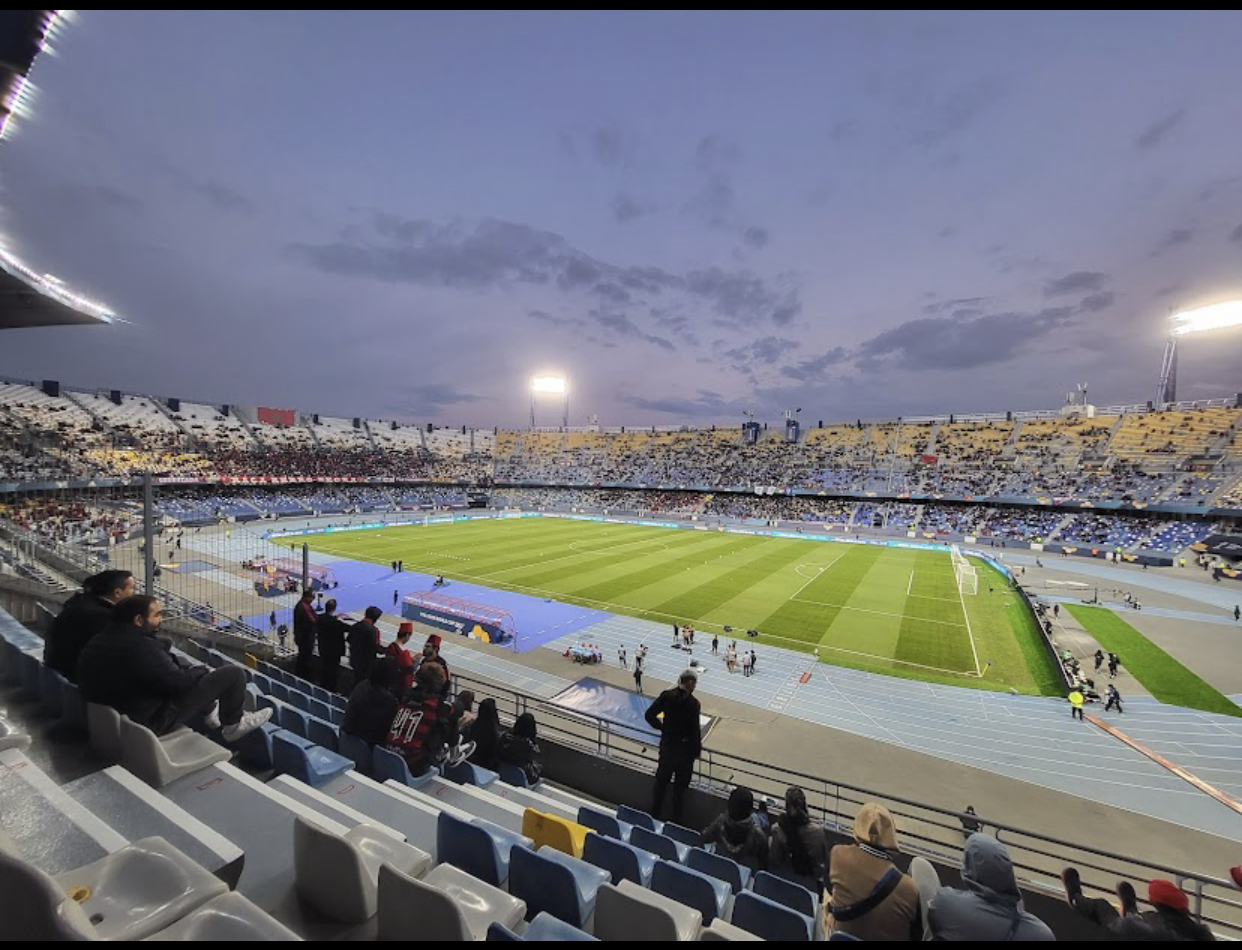
Named after the Moroccan scholar and explorer Ibn Battuta, this multi-use stadium in Tangier primarily hosts football matches and major events such as ceremonies and concerts. After renovations completed for the 2022 FIFA Club World Cup, its legal capacity increased to 65,000. It now serves as the new home for IR Tanger, taking over from the former Stade de Marchan. The stadium is expected to host some of the most significant matches of the 2025 Africa Cup of Nations.
Adrar Stadium, Agadir
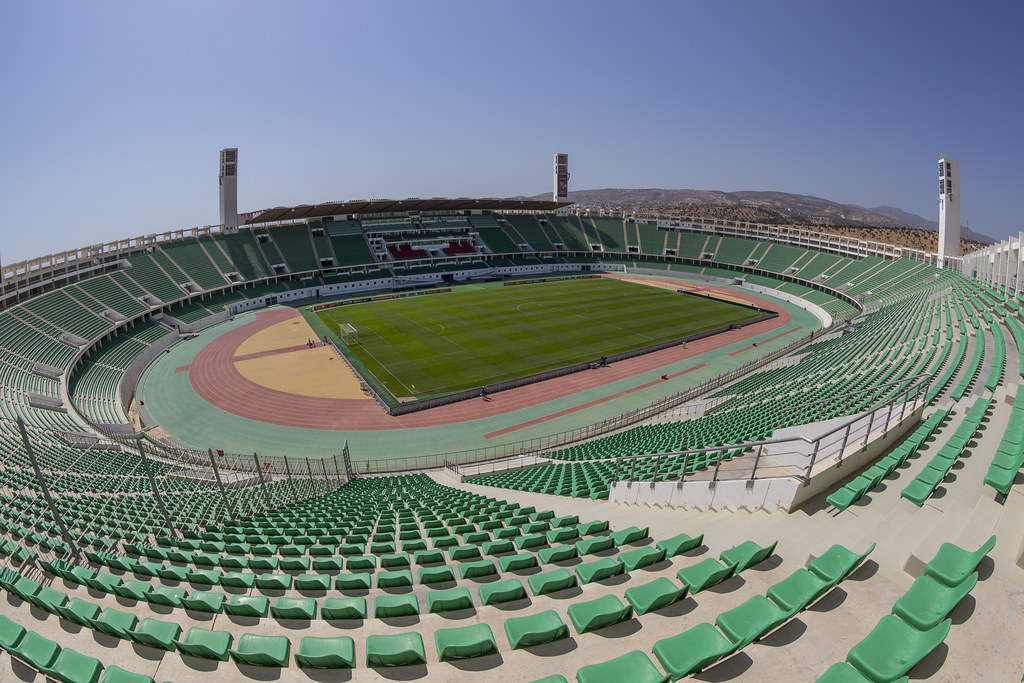
Renowned for its beautiful setting and modern amenities, this multi-use stadium in Agadir is located near the Atlas Mountains. It serves as the home ground for the local team, Hassania Agadir, and occasionally hosts matches for the Moroccan national team, as well as FIFA and CAF international games as a neutral venue. The stadium is currently undergoing expansion in preparation for the tournament.
Marrakesh Stadium, Marrakesh
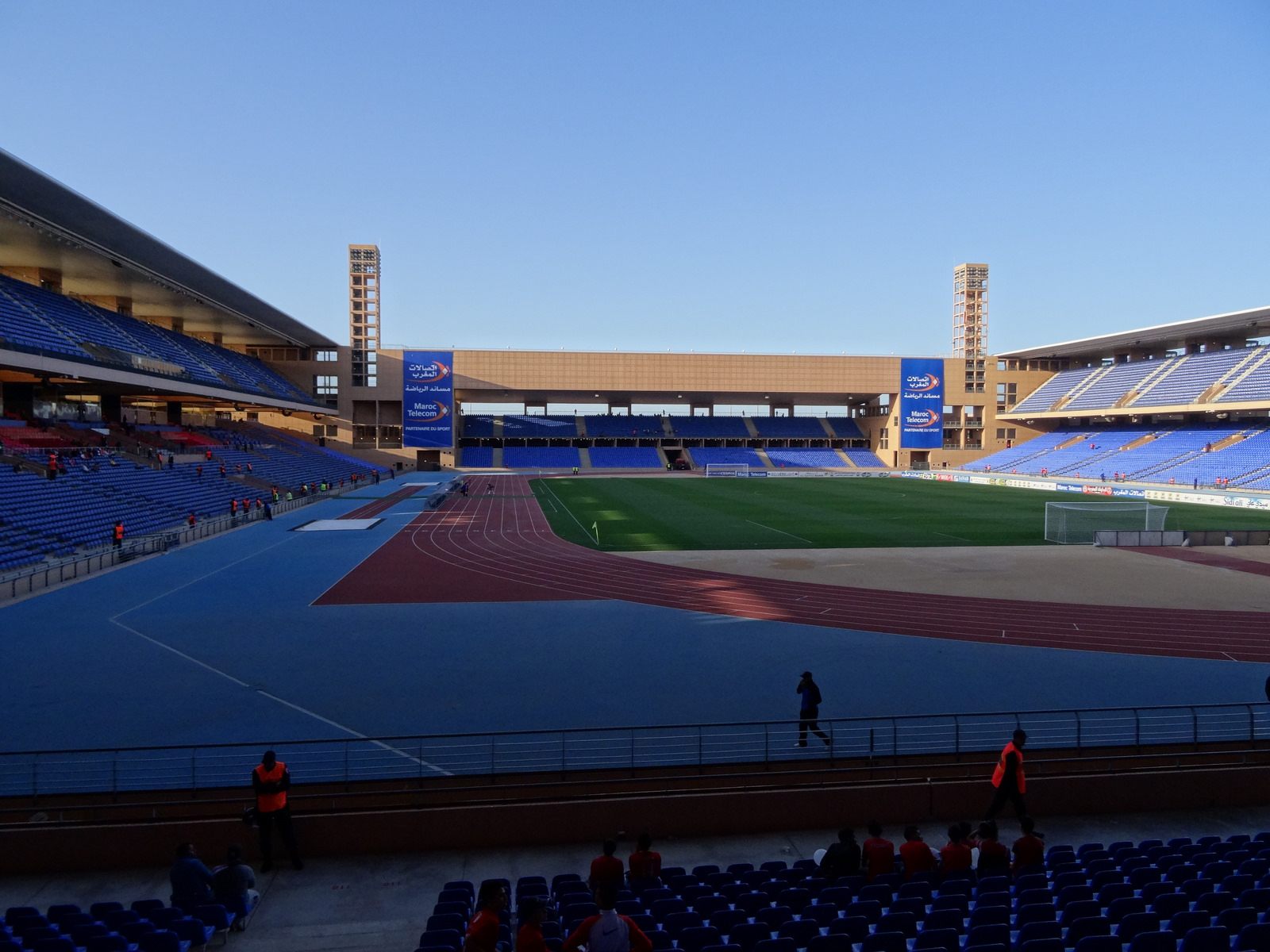
This contemporary football stadium, a popular venue, can accommodate over 45,000 fans. Its distinctive design reflects the architecture of Marrakech, featuring thick walls, tall towers, and intricate minarets. It has served as one of the venues for the FIFA Club World Cup, hosting the final in 2013 and 2014.
Fez Stadium, Fez
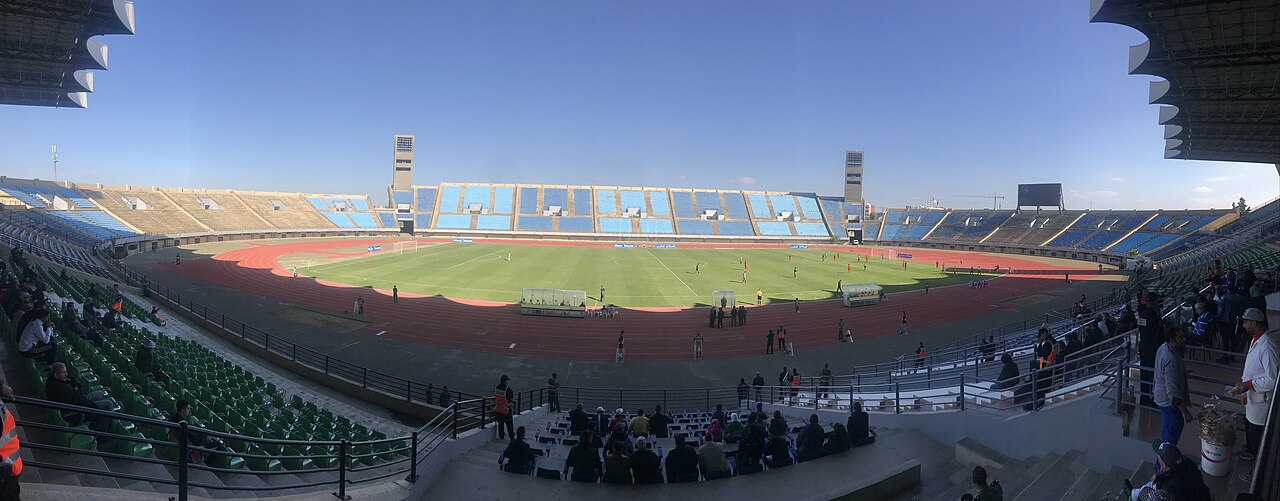
The Fez Stadium is a multi-purpose facility within the Fez Sports Complex. Primarily used for football matches, it also features athletics facilities. Built in 2003, the stadium has a capacity of 45,000 and offers a more traditional setting, enhancing the diverse experiences available to fans.
Morocco last hosted the Africa Cup of Nations in 1988, when only eight teams participated, with Cameroon winning a tough final against Nigeria. Fast forward to 2025, and the tournament has greatly expanded to feature 24 teams, underscoring the growth and development of African football over the past thirty years.
Morocco will be the second African nation to host a FIFA World Cup, following South Africa in 2010. Along with Portugal and Spain, Morocco will jointly host the 2030 World Cup, a decision that highlights the country’s passion and commitment to developing world-class sporting infrastructure.
–
Story by: Gabriel Tecco Mensah | univers.ug.edu.gh
